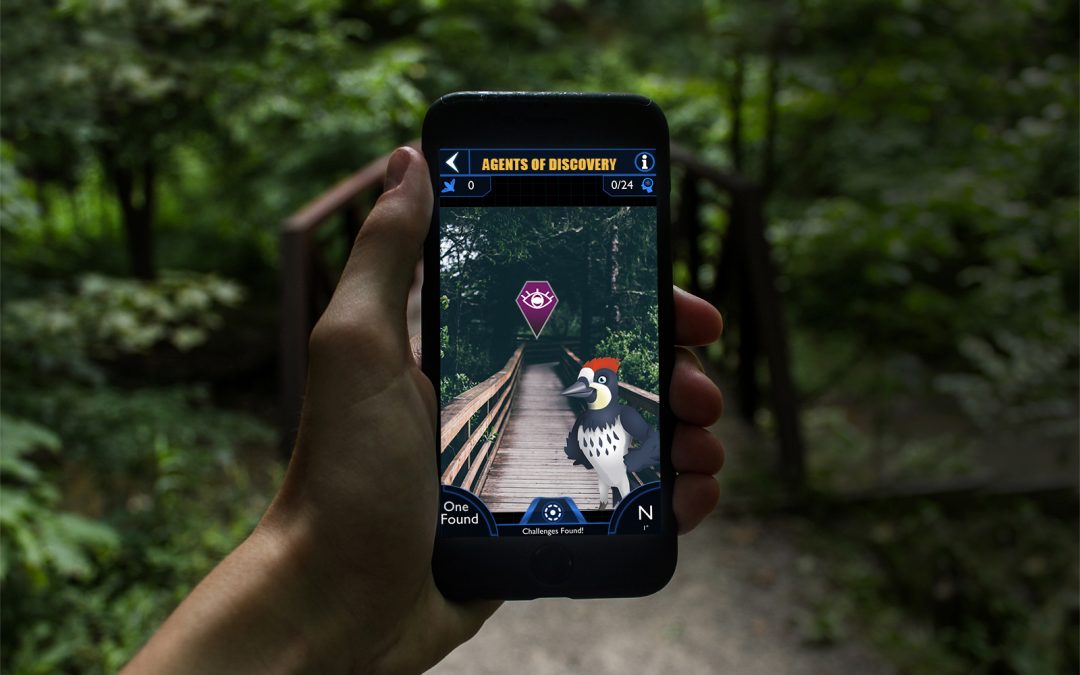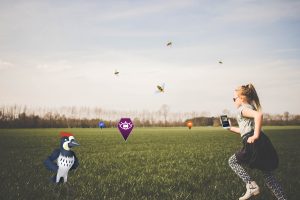By. Mary Clark, CEO, Agents of Discovery
I grew up hiking and skiing practically every weekend with my family, and my fondest childhood memories have a natural backdrop. This love of the natural world has informed my entire adulthood, and this perspective has carried me throughout my personal and professional life.
I am lucky to have been able to turn this passion into a career. Today, I am the CEO and founder of Agents of Discovery, an educational mobile gaming platform that encourages lessons outdoors. The aim of our place-based learning game is to foster a greater connection to the environment and community, all in the hopes of instilling values of environmental stewardship, advocacy, and conservation in youth.
However, in a world of dwindling natural resources, worries about the ability of future generations to share in these experiences are at the forefront of my mind. I want all children to have the opportunities I was afforded. With the understanding that not all families are able to make these trips part of their weekly routines, I want them to at least be an aspect of the school day. Hopefully sparking an interest in today’s young people will ensure that our public spaces are better taken care of for years to come.
The bulk of the research involved in my Master’s in Education focused on the capacity that mobile gaming holds for transforming education into a relatable and hands-on experience. Essentially, I set myself the task of answering, “how can mobile games, and youth’s preoccupation with them, benefit science education?” For me, hands-on science education that takes place out in nature = environmental education. This examination sparked a jumping-off point for the creation of my own product.
Our digitally-native youth spend more time than ever in front of screens. The most obvious difference between screen time in the 1990s and now is that TV and magazines, once the primary connection point between youth and the media, have been replaced by tablets, mobile devices, and gaming consoles.[1] This shift has presented its own challenges, but it also presents exciting new modes of communication, play, expression, learning, and exploration. The gaming and media industries have profited immensely as early adopters of this paradigm shift, but educators have been slow to evolve. What can educators learn from these industries’ methods of engaging youth? Gaming encourages knowledge recollection, puzzles and problem solving, lateral thinking, teamwork, and the ability to persevere in the face of difficulties. Notably, one key finding across many gaming studies is that memory is retained longer if the subject matter in question is emotionally engaging.[2]
However, the benefits move far beyond the realm of academic success. There are several ways this type of technology has the potential to motivate an interest in environmental science education among younger audiences. For instance, community science campaigns such as the Audubon bird count and international BioBlitz initiatives have been around for a long time. Considering these campaigns rely on the engagement of everyday citizens, wouldn’t an educational mobile game be a great avenue for increasing participation? There are now many technology companies (such as PocketLab) that participate in these types of campaigns. If participants have science tools at their fingertips, all that is left is the inclusion of gamified geographical aspects, and we could mobilize an entirely different age demographic in data collection.
This type of outdoor, geographically-based learning does work to engage youth. Last year, our company partnered with several classes from the Fullerton School District in Orange County, California, to pilot our product. It was pretty incredible to watch students intuitively grasp the technology applied to their lesson plans. During our visit, one teacher’s testimonial really stood out to me:
“It’s been an amazing experience watching my students get excited about the curriculum and become species experts. Game-based learning is incredibly effective, and I’m glad we are using Agents of Discovery as another one of our tools to educate kids.”
Another teacher we work with in Canada said “The kids like to learn through games, through challenges, and so having an opportunity to do that, be competitive, be outside, and be connected… it kind of enwraps their interest in the learning.”
These comments really encapsulate my vision – let’s get students excited about challenging curriculum and capture their interest in nature. The emotional connection between fun and learning can be adapted in schools to seriously impact the way children grasp concepts. What better way to learn about changing landscapes than to engage with content on-site?
My own childhood taught me the value of spending time outside. I’m inspired every day by the possibility of making this available to today’s kids, no matter what their background. We want to change the way kids learn – in a way that will engage and inspire them to work toward a more sustainable world.
Mary Clark is the visionary founder of Agents of Discovery, a gamified way to get kids active, engaged, and learning. With over 25 years of experience in education and technology, Clark serves as Agents of Discovery’s Chief Executive Officer. Clark holds a B.Sc. (Honours) and B.Ed. from the University of Alberta, as well as a Master’s degree (focusing on Education Technology) from the University of British Columbia.
[1] Matthew Nevard, as found in: Wakefield, J. (2015, March 27). Children spend six hours or more a day on screens. BBC News.
[2] Whitton, N. (2014). Digital games and learning: Research and theory. New York, NY: Routledge.


